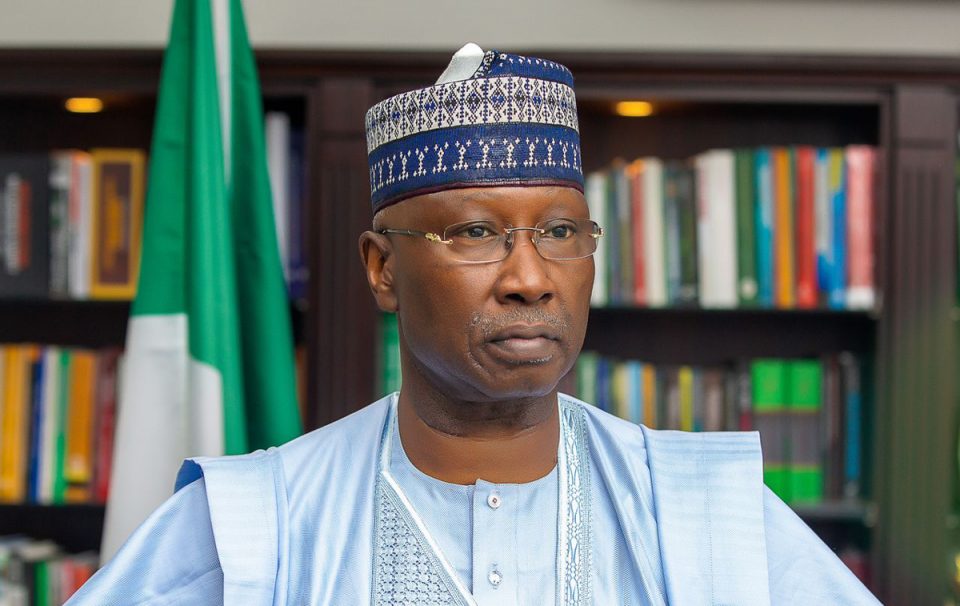Experts kick as 40 presidential panels gulp N20bn
Over N20bn was earmarked for presidential committees supervised by the Office of the Secretary to the Government of the Federation between 2015 and April 2023.
Experts have frowned at the amount the current administration had spent on funding committees.
Speaking with our correspondent, Research Director, Centre for China Studies, Abuja, Charles Onunaiju, said although committees were ad-hoc vehicles to address evolving issues, most had only usurped roles belonging to existing agencies while failing to deliver results.
“We do not see what they have achieved in terms of results and service delivery. Committees, in my view, are supposed to be engaged on issues that are generally not expected or for whom we do not have statutory institutions or organs to deal with.
“But we have seen that some committees have become a hybrid, accountability processes are opaque and they are not held accountable under the traditional process.
“They have been, more or less, usurping roles of traditional government institutions. So, it is not out of place to see that they have gulped so much money and returned so little in terms of service delivery,” he observed.
A development economist and public affairs analyst, Aliyu Ilias, argued that existing ministries, departments and agencies could undertake some committee functions if given the room.
Ilias said, “There are no committees that a director in a ministry cannot spearhead. That is why we have special duties.
“You recall that the National Social Investment Programme was eventually transferred to the humanitarian ministry.
“These monies are uncalled for because you cannot put your hand to what they are doing exactly and they are meant to last for some time. So, it is better to pick from the ministries, departments and agencies.”
On his part, a foundation member of the All Progressives Congress, Osita Okechukwu, argued that the committees were essential ingredients of policy formulation.
“We cannot formulate policies in the marketplace. So, it is always more beneficial to society when the committees are primarily made up of experts in that area.
“That is why it becomes important to set up committees so that the policy in question will be reviewed upside down until the government says ‘this is the best model or strategy that we should use to pursue a given policy to achieve a given result’.
“It is as they say in the parliamentary language that most results are not achieved in the general house, but at the committee levels because a few good heads can bring up good ideas and present them to the general house,” Okechuwu said.
The Office of the Secretary to the Government of the Federation could not be reached at the time of filing this report.
This came as the President, Major General Muhammadu Buhari (retd.), inaugurated at least 40 committees and councils to drive various government agendas, since assuming office in 2015
The committees comprise various sectors: education, health, security, the digital economy, and the civil service.
Most recently, the President inaugurated a 14-member Steering Committee on Petroleum Products Supply and Distribution management to address fuel scarcity, a 56-member National Advisory Committee on Women’s Economic Empowerment and the Presidential Transition Council to usher in a new government on May 29.
Others include the National Steering Committee of the National Poverty Reduction with Growth Strategy, an 18-member Presidential Steering Committee on Alternate School Programme, the Health Sector Reform Committee with Vice President Yemi Osinbajo as Chairman, the reconstitution of the Standing Committee on National Honours Award, a 17-member committee for the development of Nigerian football, amongst others.
In 2022, the President inaugurated an 11-member presidential committee on the national economy and a Presidential Steering Committee on reviewing the Integrated Payroll and Personal Information System, the Treasury Single Account, and the Government Integrated Financial Management System.
In the same year, the President also set up a committee to consider the demands of the Academic Staff Union of Universities in the Union’s eight-month faceoff with the Federal Government.
He also inaugurated the National Council on Climate Change, the Nigeria End Malaria Council, in line with the African Union Assembly Declaration for the Establishment of EMCs continent-wide.
On August 19, 2022, while receiving the Central Working Committee of the Association of Senior Civil Servants of Nigeria at the State House, Buhari revealed that he had created a committee to harmonise salaries in the Public Service.
He also set up a 27-man Presidential Council on Digital Economy and E-government, the reconstitution of the membership of the governing body of the National Anti-doping Committee and the Presidential Committee on the Repatriation, Return and Resettlement of Internally Displaced Persons in the North-East of Nigeria.




